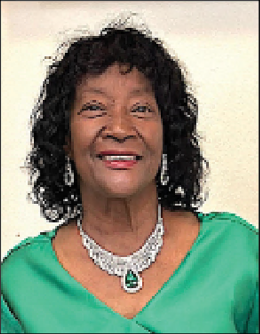Mississippi Public Universities collaborate with industry, fuel economy
Published 2:07 pm Sunday, December 12, 2021
Collaborative efforts between Mississippi Public Universities and business and industry provide benefits for students, the businesses, their customers, and the economy. These partnerships often give students the opportunity to apply the knowledge and skills they are learning in the classroom in a real-world environment. For the businesses, the partnerships enable them to solve problems and improve products and services, better serve their customers, and recruit talent to ensure a strong workforce for the future. As the businesses grow and thrive, Mississippi’s economy also thrives.
Madison County residents now have convenient access to care in multiple specialties through clinics staffed by University of Mississippi Medical Center surgeons and specialists. University Physicians has moved its clinic operations next to Merit Health Madison, just a short drive off the Nissan Parkway from Interstate 55. University Physicians offers general surgery services at Merit Health Madison in addition to surgery specialties that include adult and pediatric ophthalmology, breast and breast oncology, dental, oculoplastics, oral and maxillofacial, adult and pediatric orthopaedics, pain management, pediatric ENT, plastic surgery, oncology, urogynecology, urology, and dialysis and vascular access.
The University of Southern Mississippi has a long-term relationship with The Boeing Company, the world’s leading manufacturer of aerospace products. Under a master agreement signed in 2015, USM works with Boeing to serve as the technology incubator of next generation composite material systems. USM’s partnership with Boeing has created internships and permanent job opportunities for students in the polymer program. A 2019 USM graduate, Katelyn Cordell, landed a role at Boeing immediately following graduation, to work with Boeing’s next generation composites team to develop new composite materials and learn more about carbon fiber.
The University of Southern Mississippi-led Gulf Blue innovation initiative partners with industry to bring Big Ideas Out of the Blue and works with industry partners and entrepreneurs to further develop the Gulf Coast region into a global leader in blue technology. Autonomous marine vehicle developer and manufacturer, Ocean Aero, Inc., is one of those industry partners. Working in conjunction with USM, Ocean Aero, Inc. recently tested the sixth Triton autonomous maritime vehicle for government acceptance testing and partner training at USM’s Marine Research Center (MRC), located at the Port of Gulfport. In September 2021, Ocean Aero, Inc. announced a relocation of its manufacturing and company headquarters from California to Mississippi. Collaborations with private blue tech companies like Ocean Aero, Inc., are key to the success of the Gulf Blue initiative.
Cargill is donating more than $1 million to Alcorn State University as part of its Thrive program. The program goes beyond scholarships and provides students with mentoring, development programming, and career coaching to help transform their education into meaningful careers. The Thrive program is part of Cargill’s broader commitment to diversity, equity, and inclusion, which is focused on achieving gender parity, advancing underrepresented groups in leadership around the world, and combatting anti-Black racism.
Alcorn State University is among twenty-eight historically Black colleges and universities that have partnered with Strada Education Network. Strada is a nonprofit organization focusing on improving individuals’ social mobility through “boosting purposeful connections between education and work.” The initiative’s goal is to prepare the next generation of leaders by assisting students with making the connection between their career and leadership goals. Through the partnership, students will have access to leadership development, scholarships, and financial assistance to support them during internships.
Offering the state university system’s only undergraduate and graduate aviation programs, Delta State University’s Department of Commercial Aviation offers a Bachelor of Commercial Aviation (BCA) in Flight Operations and Aviation Management, and a Master of Commercial Aviation (MCA). Students are prepared for a variety of opportunities in the aviation industry including the airlines, aircraft manufacturing, airport management, air traffic control, military aviation, and logistics.
The Geospatial Center at Delta State University performs real-world work through sponsored projects. On-campus students may be hired to work and eventually lead projects worth more than $250k, providing valuable experience and lucrative employment opportunities post-graduation.
Jackson State University’s Women’s Business Center is open—pending an official grand opening in January 2022. It will provide business services to women seeking federal contract dollars as women-owned small businesses (WOSB) and economically disadvantaged women-owned small businesses (EDWOSB). The WBC @JSU is located on the third floor/suite 332 in JSU’s College of Business.
The center will offer confidential one-on-one counseling, low-cost training, networking, free workshops, technical assistance and mentoring to women entrepreneurs on numerous business development topics. Assistance also will include providing information about business startup, financial reporting and procurement.
To participate in the Women’s Business Center @JSU, individuals must meet the following criteria: (1) Be a US citizen (2) Be a woman (3) Own and control at least 51 percent of a small business that is in the legal form of an individual proprietorship, partnership, limited liability company, S Corporation or C Corporation (4) Nonprofits are ineligible. Debarred or suspended firms or firms owned by debarred or suspended individual(s) are also ineligible. (5) Business must operate primarily within the U.S. or make a significant contribution to the U.S. economy through payment of taxes or use of American products, materials or labor. (6) Business is considered small in accordance with its primary North American Industry Classification System (NAICS) code.
The in-take process and needs assessment will allow the center to identify the needs of the clients and customize support to meet those needs. The center will capitalize on the strengths of the JSU Small Business Development Center; the Center for Innovation, Entrepreneurship and Economic Development; and faculty expertise in the College of Business.
Mississippi State University’s Raspet Flight Research Laboratory is partnering with Southern Company and the Tennessee Valley Authority to expand the use of unmanned aircraft systems to inspect critical utilities infrastructure, improving safety and lowering costs. UAS are not presently permitted to operate unless they can be seen visually by the pilot or a trained observer working with the pilot. The FAA and UAS industry leaders worldwide, including Raspet, are researching and evaluating methods to expand UAS operations safely past this present limitation. For example, Raspet researchers are among those investigating various technologies which enable UAS to reliably detect and avoid other aircraft in surrounding airspace.
Based in Canton, MSU’s Center for Advanced Vehicular Systems Extension serves as the outreach arm of the CAVS research facility located on MSU’s Starkville campus. CAVS Extension helps meet the needs of Mississippi’s manufacturers by providing technical expertise, industry-focused professional development, and on-site project support in the areas of product and process improvement. U.S. Department of Commerce data shows the center has supported the creation or retention of more than 6,000 jobs with a $6.2 billion economic impact in Mississippi since 2006.
Interdisciplinary teams from Mississippi State University and East Mississippi Community College are working together to understand the barriers to, and potential benefits of, wearable technology in industry settings. With $120,000 in National Science Foundation funding, the team will conduct several focus groups to better understand how various industry stakeholders perceive wearable technology. This technology includes sensors that are worn by a user and transmit data about their movements and other physiological indicators such as heart rate. The focus groups will include a wide range of people who would potentially interact with wearables, from human resources personnel, purchasing decision makers, and employees wearing the devices.
Created through a partnership between C Spire, East Mississippi Community College and the Mississippi State University Center for Cyber Education, the C Spire Software Development Teacher Training Academy equips high school teachers with the experience, skills, license endorsements and accreditation needed to teach dual-credit software development classes. The program consists of 30 hours of coursework that takes two years to complete, and participants are paired with an industry mentor. It provides funding that covers all tuition and books for the coursework, as well as the cost of obtaining up to four Microsoft industry certifications. Teachers receive additional monetary benefits for participating in job shadowing and completing the training program.
FedEx Logistics, Inc., a subsidiary of FedEx Corp. (NYSE: FDX), has a program designed to offer employment opportunities at Historically Black Colleges & Universities (HBCUs). The company collaborated with Mississippi Valley State University (MVSU) to provide professional opportunities for students and build a pipeline of talent to support its industry-leading customs brokerage operations. FedEx Logistics has a satellite office on the MVSU campus in Itta Bena, staffed with qualified students. Students have access to part-time employment while in school, with the potential for full-time employment upon graduation. All students employed by FedEx Logistics receive competitive wages and are also eligible to receive full benefits (after 90 days) and tuition assistance.
Twenty University of Mississippi accountancy, business and engineering students got a rare opportunity to solve real-world problems through an experiential learning course on the Mississippi Gulf Coast. The students spent almost a week in Gulfport at Keith Huber Corp., the nation’s largest manufacturer of industrial vacuum and pumper trucks, as part of Manufacturing 450: Practical Problem Solving. Working with Keith Huber managers and team members, the Ole Miss students began the week with a discussion spanning fundamental problem-solving techniques to more complex methods used by companies such as Ford Motor Co., Caterpillar and Toyota. After studying techniques used by industries to avoid problems in product and process designs, the course finished with each team presenting their solutions to the company’s executive team.
A joint research drilling project between the Mississippi Mineral Resources Institute at the University of Mississippi and Profile Products, a northeast Mississippi mining company, is producing benefits for both partners. Profile Products mines the clays of the Porters Creek Formation in Tippah County and makes products used to construct and maintain athletic fields across the country. UM researchers and students are drilling test holes to collect data that can be used to validate geophysical methods for subsurface characterization. Collected samples are tested by Profile Products to see if the material meets its specifications, and samples are analyzed by UM researchers to understand the geological history and origin of the geological formation. This research will validate the level of accuracy of the geophysical data to show how these methods can be used in areas where drilling is not allowed, such as levees on the Mississippi River.





